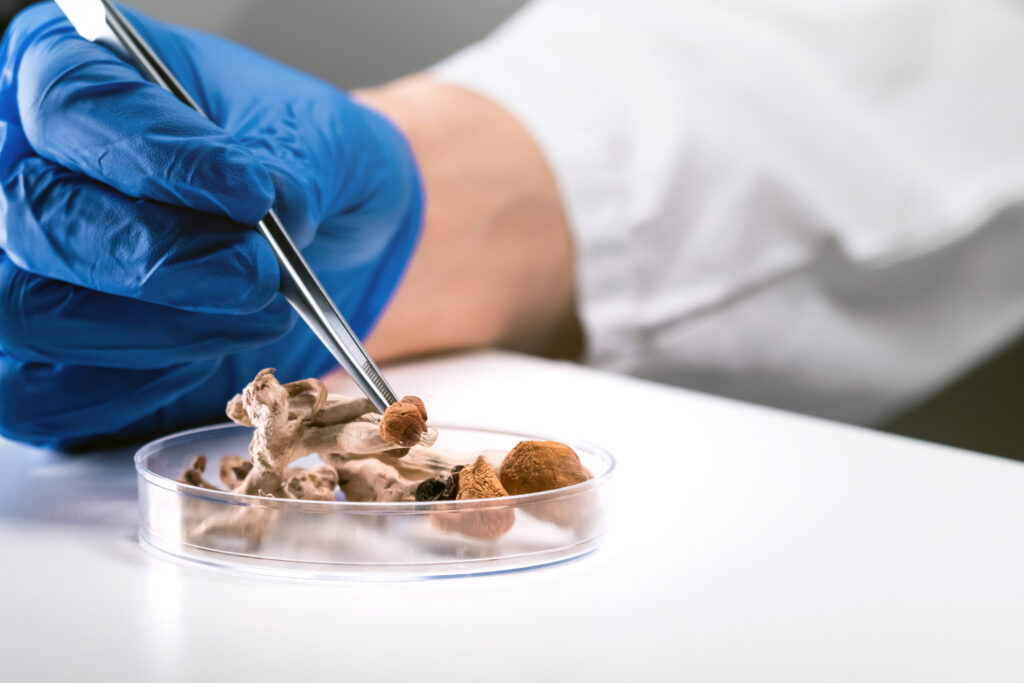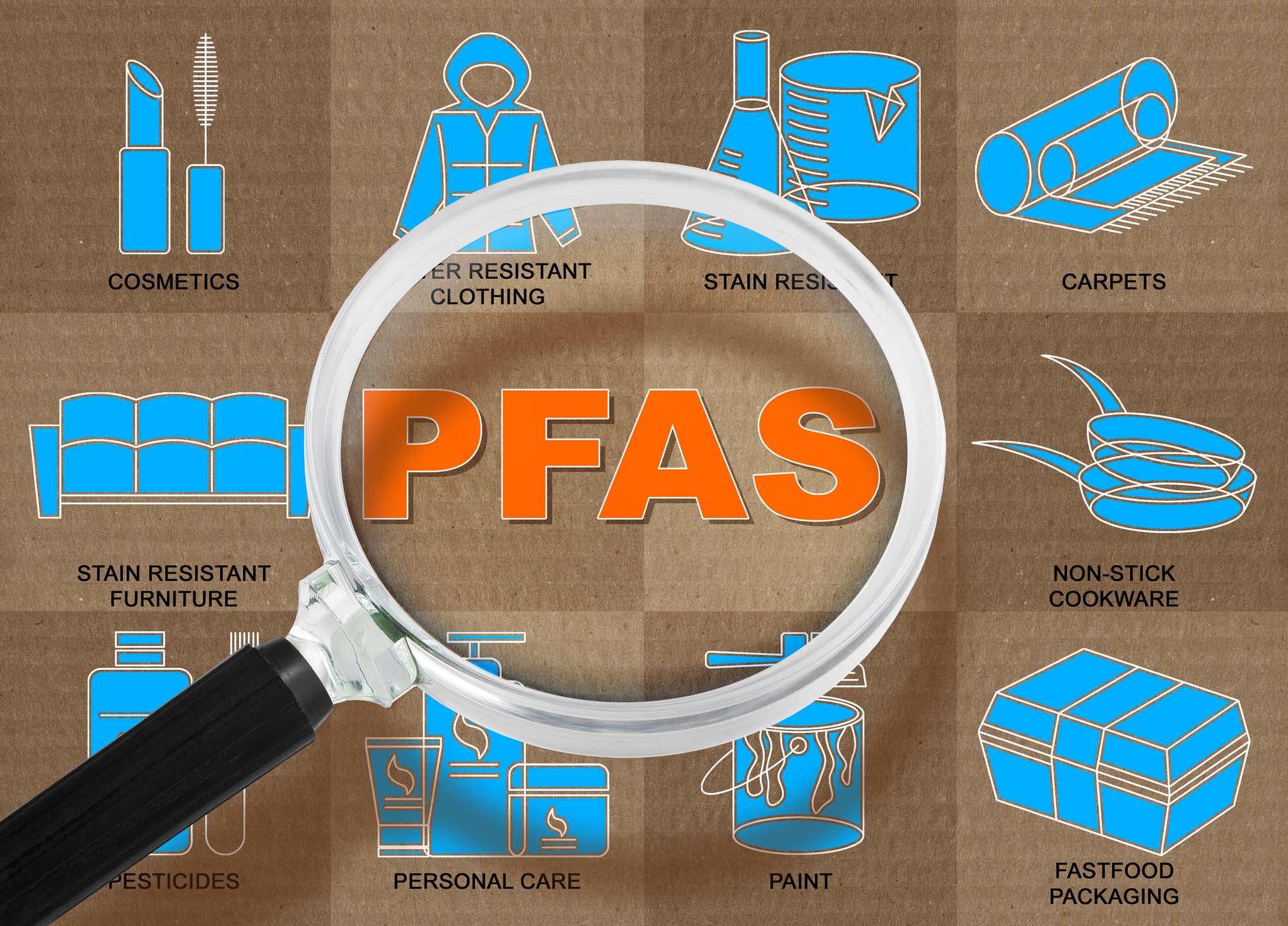
Across the United States, lawmakers are increasingly reconsidering psilocybin policy in response to growing evidence of its therapeutic potential. Psilocybin is a naturally occurring psychedelic compound found in particular species of mushrooms. Once stigmatized and criminalized, scientists and policymakers are reevaluating it as a promising treatment for mental health conditions such as depression, post-traumatic stress disorder (PTSD), and substance use disorders. The U.S. Food and Drug Administration (FDA) has designated psilocybin-assisted therapy as a “breakthrough therapy” for treatment-resistant depression, signaling its potential to be among the next generation of mental health treatments.
While the U.S. Drug Enforcement Agency (DEA) still classifies psilocybin as a Schedule I substance, states are beginning to take matters into their own hands—either by decriminalizing low-level possession or creating medical frameworks for therapeutic access. As these efforts unfold, each state is carving out a different path. This blog post summarizes recent psilocybin legislation across several key states, providing an overview of the policy trends and legislative nuances shaping the future of psychedelic therapy in America.
Connecticut: Psilocybin Decriminalization Legislation
Connecticut’s proposed House Bill 7065 would decriminalize the possession of small amounts of psilocybin, the active compound found in psychedelic mushrooms. Under current law, possession of any amount of psilocybin is a class A misdemeanor, punishable by up to 364 days in jail and a $2,000 fine. This bill would instead treat possession of less than one-half ounce as a non-criminal offense: a first offense would carry a $150 fine, while subsequent offenses would result in a fine ranging from $200 to $500.
The legislation would also prevent individuals under 18 from being adjudicated delinquent for a first or second offense of low-level psilocybin possession. Those under the age of 21 convicted would face a 60-day driver’s license suspension and, if unlicensed, would become ineligible for a license for 150 days after meeting the requirements.
HB 7065 would also revise Connecticut’s drug paraphernalia laws by removing criminal penalties for the possession or use of paraphernalia involving less than half an ounce of psilocybin. While the penalties would remain for larger amounts or offenses occurring near school zones, this change represents a shift toward harm reduction.
Additionally, the bill would lower the standard of proof for enforcing these low-level violations. Violations under HB 7065 would be judged by a preponderance of the evidence—a lower legal threshold than the “beyond a reasonable doubt” standard used in criminal trials. Notably, the bill would not legalize psilocybin or create a medical framework for its use but focuses solely on reducing criminal penalties associated with possessing small amounts.
Massachusetts: Two Paths to Psilocybin Reform
Massachusetts lawmakers are weighing two approaches to psilocybin reform: a comprehensive regulatory framework and a targeted decriminalization measure.
H.4050, introduced by Rep. Patrick Kearney, proposes a statewide regulatory framework for legal adult access to psilocybin through a permitting process, education, and harm reduction support. Permit holders would be allowed to cultivate or purchase psilocybin mushrooms for personal use, and support providers would be certified to assist users.
In contrast, S.1113, filed by Sen. Cindy Friedman, focuses on psilocybin decriminalization. It would remove criminal penalties for possessing up to one gram and treat it as a civil offense with a $100 fine. The bill includes broad exemptions for veterans, medical patients, spiritual users, and those using psilocybin for end-of-life care or personal growth. Additionally, it would bar discrimination in housing, employment, and child custody based on psilocybin possession.
Both bills reflect a growing interest in psilocybin legislation but represent differing philosophies—one focused on legal access and regulation, the other centered on harm reduction and civil rights.
Minnesota: Regulated Medical Psilocybin Use Proposed
In March 2025, Minnesota lawmakers introduced HF 2906, a bill that would create a tightly regulated therapeutic psilocybin program for adults aged 21 and older with qualifying medical conditions. The framework would be modeled after Minnesota’s medical cannabis program and allow psilocybin use in supervised sessions facilitated by trained professionals.
The bill calls for establishing a Psychedelic Medicine Advisory Committee, registration protocols, and public education efforts. It also provides legal protection for patients and providers. The measure would permit cultivation under regulations created by the Department of Agriculture; the Department of Health would oversee licensing and enforcement.
New Jersey: Psilocybin Behavioral Health Access and Services Act
New Jersey’s Senate Bill 2283 (also introduced in the Assembly as A3852) proposes a comprehensive system for the therapeutic use of psilocybin in behavioral health treatment. The bill, sponsored by Senate President Nicholas Scutari and Senator Joseph Vitale, creates a licensing system for psilocybin producers, service facilitators, and testing laboratories.
Adults 21 and older would be eligible to participate in guided psilocybin sessions after receiving a certificate from a healthcare provider. The services would follow a structured process—preparation, administration, and integration—and be supervised by trained professionals. The bill includes social equity measures, background checks, marketing restrictions, and a regulatory development timeline.
This psilocybin legislation aims to provide access to evidence-based therapies for conditions such as depression, PTSD, and anxiety while ensuring public safety and professional accountability.
New Mexico: Landmark Medical Psilocybin Law Enacted
In April 2025, New Mexico became one of the first states to enact a law legalizing supervised psilocybin therapy. The Medical Psilocybin Act (SB 219) permits the use of psilocybin for treatment-resistant mental health conditions and removes it from the state’s Schedule I substances for medical purposes.
The law establishes a Medical Psilocybin Advisory Board to oversee implementation and tasks the Department of Health with licensing, rulemaking, and safety enforcement. It also creates funding mechanisms for patient equity and clinical research. By creating a robust and regulated system, New Mexico’s psilocybin legislation may become a national model.
Oregon: Enhancing Psilocybin Therapy Access and Oversight
Oregon continues to lead in psilocybin legislation with House Bill 2387, which passed the House 55–4 in April 2025. The bill would clarify that licensed healthcare professionals can discuss and provide psilocybin services without facing disciplinary action. It would also strengthen data reporting, enhance labeling requirements, and support regulatory transparency.
The legislation would modify the Oregon Psilocybin Advisory Board and enable broader collaboration among licensing boards. It reflects a shift from pioneering legalization to fine-tuning therapeutic oversight.
Pennsylvania: Bipartisan Bill to Expedite FDA-Approved Psilocybin Therapies
Representatives Jennifer O’Mara (D) and Craig Williams (R) are drafting a bipartisan bill that would automatically reschedule psilocybin in Pennsylvania upon FDA approval and DEA rescheduling. The lawmakers are motivated by personal experiences with mental health challenges and aim to eliminate bureaucratic delays in accessing medical psilocybin.
Their forthcoming psilocybin legislation would apply only to pharmaceutical-grade, FDA-approved psilocybin administered under medical supervision. It explicitly excludes natural psilocybin or recreational use and would ensure coverage by insurance plans.
Virginia: Psilocybin Prescription Bill Vetoed by Governor
Senate Bill 1135 would have required Virginia’s Board of Pharmacy to draft regulations permitting prescription access to FDA-approved crystalline polymorph psilocybin once rescheduled by the DEA. The legislation would have allowed licensed providers to prescribe the substance and patients to use it under strict medical guidelines.
However, Governor Glenn Youngkin vetoed the psilocybin legislation, arguing it was premature without federal approval. “No other drugs are anachronistically codified by the state before federal approval,” he wrote, underscoring a more conservative approach to psychedelic policy.
From The Experts
Expert insights from the authors at Duane Morris Government Strategies.
Ryan Stevens
As scientific interest in psychedelic-assisted therapy grows, state lawmakers are moving forward with psilocybin legislation tailored to their legal frameworks and public health goals. The diversity of approaches—from full medical legalization to simple civil penalty reforms—illustrates that psilocybin policy is evolving rapidly, with bipartisan momentum across the country.
Latest News
Photo credit: iStock.com/Motortion In 2022, the U.S. Supreme Court decision in Dobbs v. Jackson Women's Health Organization overruled a federal constitutional guarantee of freedom to abortion. Since then, legislation concerning reproductive healthcare—including access to [...]
Photo credit: iStock.com/Francesco Scatena Recent trends across the country have seen several states introducing bills to ban certain chemicals, particularly perfluoroalkyl and polyfluoroalkyl substances (PFAS), in consumer products. According to the EPA, PFAS are persistent [...]
Photo credit: iStock.com/naturalbox The debate over raw milk legislation has intensified in 2024, with several states introducing or passing bills that address the sale and distribution of unpasteurized dairy products. Raw milk has not undergone [...]
In this episode of the Back in Session podcast, hosts Ryan Stevens and Ryan DeMara sit down with Terra McClelland, President of the State Government Affairs Council (SGAC) and Vice President of Government and External [...]






Stay In Touch